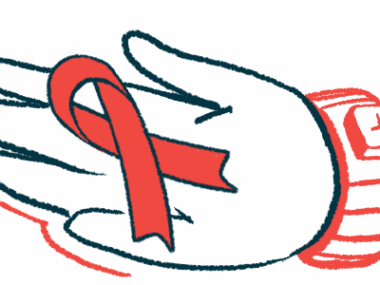ALS Patient Behind Ice Bucket Challenge Hasn’t Kicked the Bucket, as Some Reported
Written by |

Pete Frates, the Boston man who invented the Ice Bucket Challenge that raised millions for ALS, was reported to have kicked the bucket this summer — but it turned out to be a newspaper’s goof.
The erroneous report stemmed from a headline in Britain’s Sun declaring that the 32-year-old had died after a long battle with amyotrophic lateral sclerosis. What really happened was that Frates had a health scare in July, having to stay in a hospital with a pneumonia infection.
He countered the news stories by tweeting a short video of himself in a hospital bed with Pearl Jam’s song “Alive” playing in the background. And he is not backing away from his campaign to cure ALS.
“He’s the one pushing to be out there,” Frates’ wife, Julie, said of how difficult it was to persuade him to slow down. “We take all the lead from him.”
To keep his 30,000 Twitter followers updated, Frates uses a computer system that allows him to type out words using eye movements only. He tweets about his progress and about his family, friends, Boston sports, and living with ALS.
According to an AP news story written by Philip Marcelo, in the weeks after the health scare, Frates re-emerged to accept honors across his home state of Massachusetts.
In September, he joined Boston Mayor Marty Walsh on the steps of City Hall to declare September 5 “Pete Frates Day” in Boston, together with Red Sox officials, the Boston College baseball team and his family. Frates played for Boston College when he was a student.
Many of his baseball friends have also congratulated him on the release of a book telling his life story: “The Ice Bucket Challenge: Pete Frates and the Fight Against ALS.” Half of the proceeds will benefit Frates and his family.
The Ice Bucket Challenge became an international phenomenon in 2014, inspiring an estimated 17 million videos online. Everyone seemed to participate in the challenge, from politicians, to celebrities, to entire communities.
Seen by more than 440 million people around 10 billion times, the videos led to ALS donations skyrocketing to an unprecedented $220 million in eight weeks.
“New, exciting research is just starting to pan out, and that’s drawing new talent to ALS research, and a lot of companies are now interested in ALS,” said Nazem Atassi, a Massachusetts neurologist whose ALS research has received Ice Bucket funding. “It’s the perfect environment for drug discovery.”
Another development that has raised hopes in Frates’ and other ALS families is Radicava (edaravone), a drug developed by Mitsubishi Tanabe Pharma Corporation. The U.S. Food and Drug Administration approved it in May 2017.
Frates has applied for Radicava, although it may be of little help, given his advanced condition. The medication, which was developed without Ice Bucket funding, has shown promise in slowing the progression of the disease.





